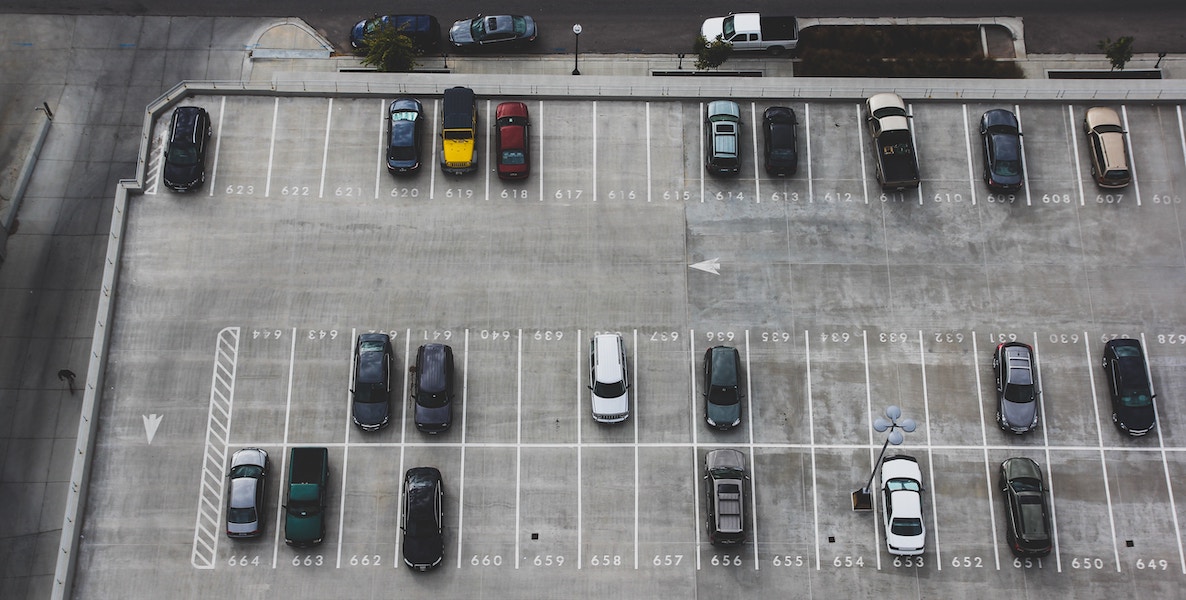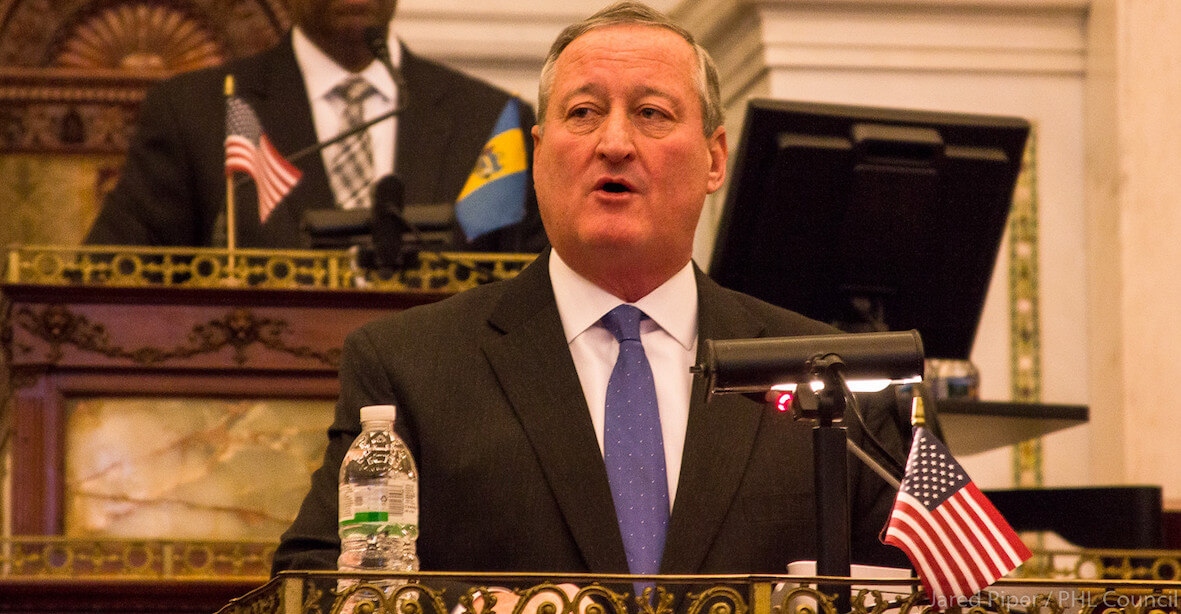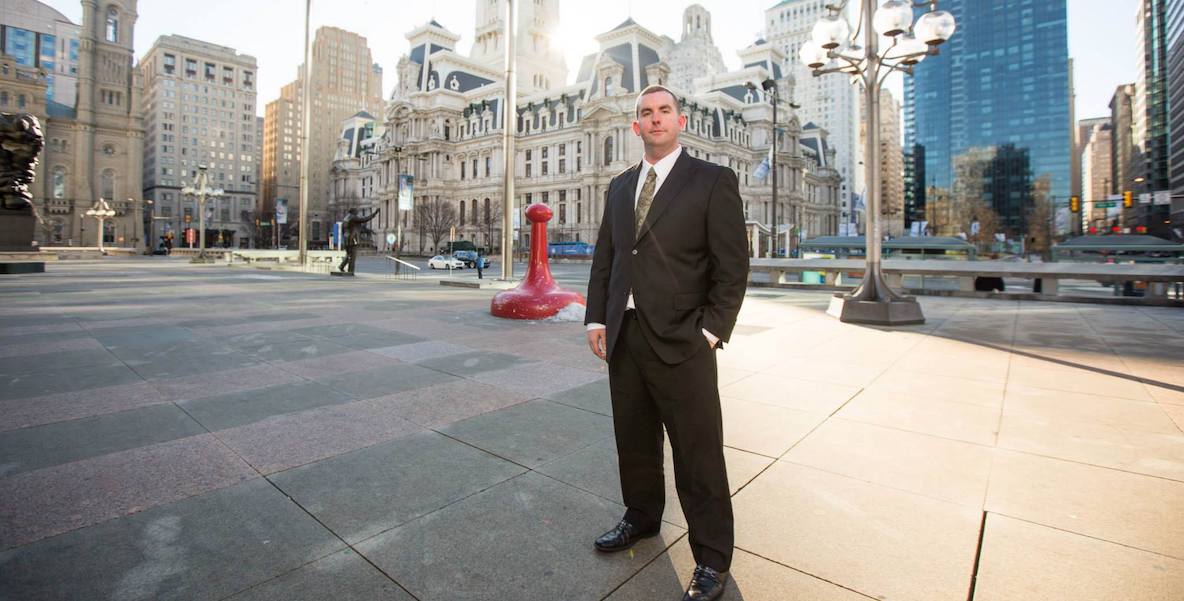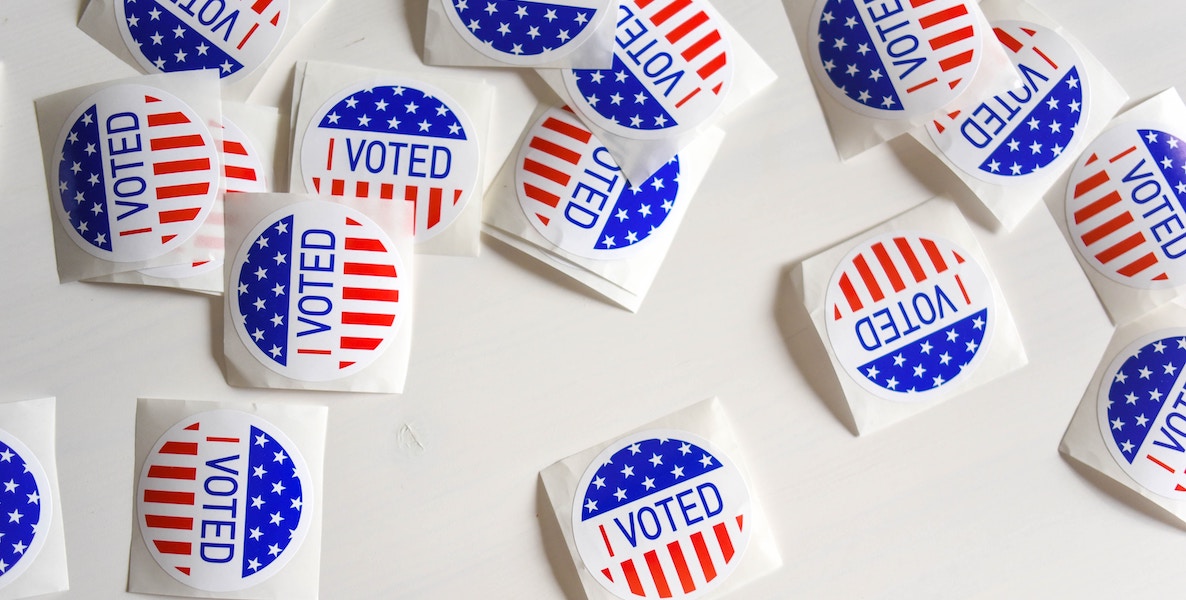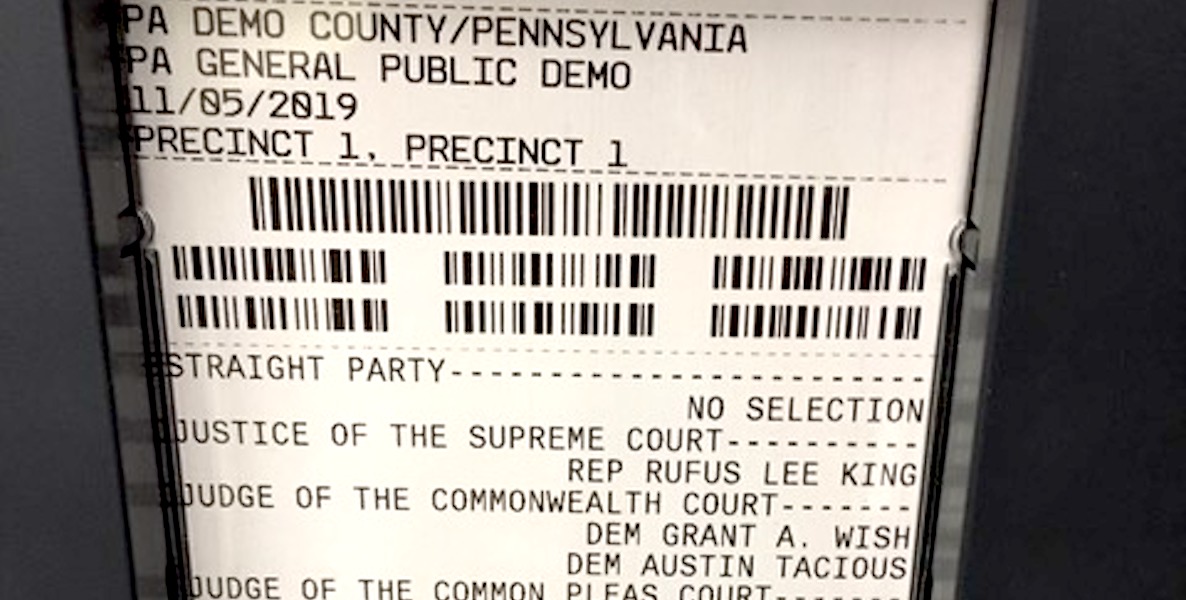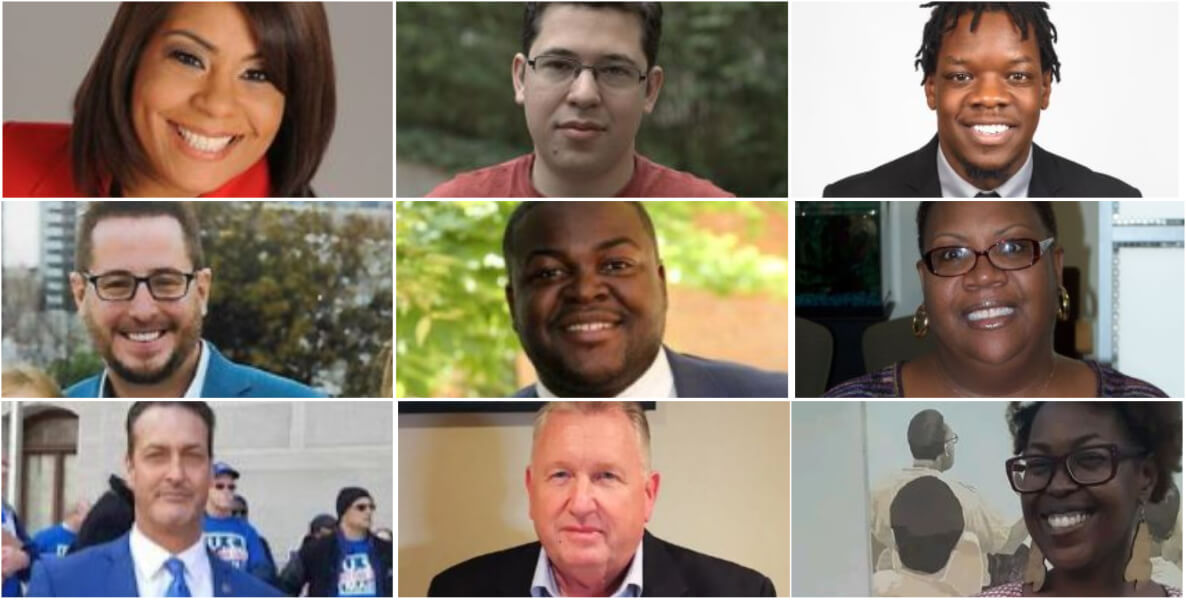November 5th is the general election. In Philly, where the Democratic Party has dominated since the 1950s, registered Republicans generally have fewer candidates to choose from in these elections. While it would be irresponsible to say it’s inevitable that the winner of the Democratic primary will win in the November general election, history shows it’s … practically inevitable.
Ready to skip right to the nitty gritty? See who’s on the ballot in the 2019 general election.
For a more in-depth look at all the City Council candidates, go here.
Didn't I just vote for these people?
If you’re part of the 23 percent of Philadelphia’s electorate that exercised its right to vote in the spring, then yes, these are the same folks you voted for then. (and good on you, btw). In that closed primary election, registered Democrats and Republicans voted among their own. The winners from that contest have moved on to be candidates in this general election.
Side note: Not a fan of that system? Let your state representatives and senators know. There are other options. Many states have open primaries, where voters of any affiliation may select a single party’s ballot and vote for candidates. Other states offer semi-closed primaries, where voters must be registered to a party to vote that ballot, but may switch their affiliation day-of.

When are the polls open?
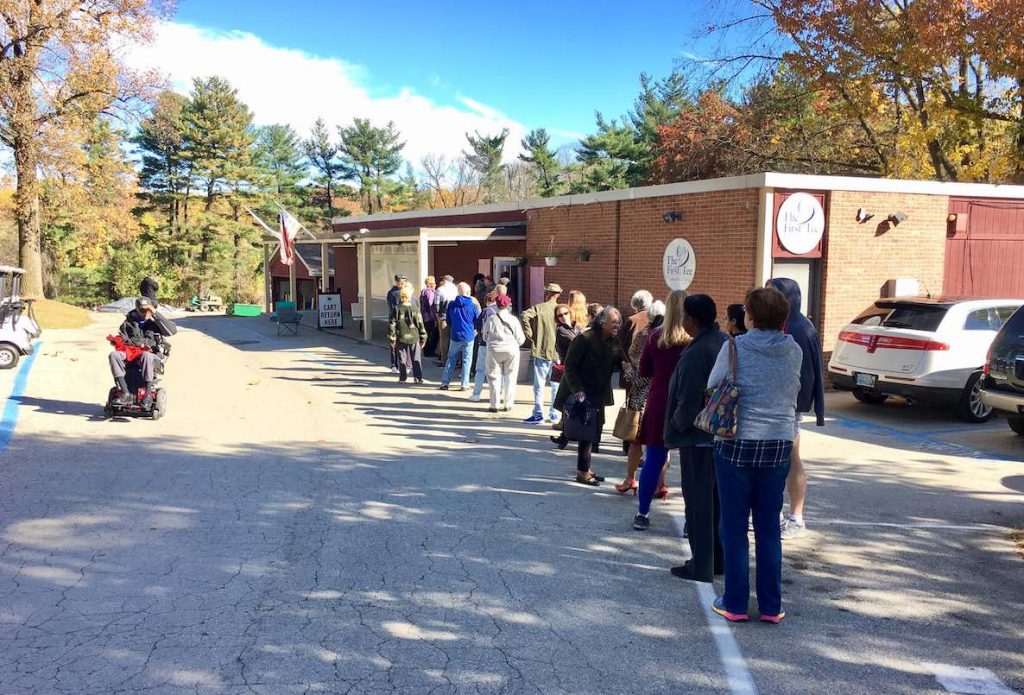
Polls are open from 7am to 8pm. Remember that you can get in line to vote before 7am, and you can vote as long as you were in line before 8pm, even if you don’t get into the actual voting booth until later. Also remember: Polling places change, so make sure you know where to go by checking with the state.

Why should I vote in this election?
1. To try out the new voting machines before the presidential primary next spring
Due to a state directive from Governor Tom Wolf, Philadelphia was on a deadline to spend millions on new voting technology ahead of the 2020 presidential election.
Concerns have been raised about the security of the machine chosen by City Commissioners, cost and lack of transparency in the selection process.
Critics say the ES&S Express Vote XL machines are less reliable and tamper-resistant than paper options. They were also some of the most expensive out there, at $8,000 per unit. The topic was a major point of debate during the City Commissioner primary. The controversy carried into the summer with an investigation by City Controller Rebecca Rhynhart, whose report called the selection process “opaque, predisposed toward one vendor, and raised conflict-of-interest concerns.”
Commissioners have been undeterred, and have moved ahead with a citywide rollout leading up to their November 5 debut. If you missed one of their demonstration events, you can prep for the new voting booth experience here.
Yet, controversy continues, with former Green Party presidential candidate Jill Stein threatening legal action if the machines are not decertified over concerns about the lack of an auditable, voter-verified paper trail.
2. You support third party candidates
The City Charter states that “not more than five candidates for councilmembers-at-large shall be nominated pursuant to law by any party or other political body.”
Practically speaking, that means dominant Democrats are only allowed to claim five at-large seats.
Some tend to think of the other two seats as Republican, but that’s only because no independent candidate has ever managed to win one. Four tried in the 2015 general election, but even the top independent vote-getter, Andrew Stober, still ended around 18,000 votes shy of Republicans David Oh and Al Taubenberger.
This year, seven independents representing five different parties are attempting to make history. Actually, one third-party candidate has already made history: Kendra Brooks, of the Working Families Party, had raised $147,657 as of her latest campaign finance report. It’s already a record for third-party candidates, with several weeks of viable fundraising remaining. And some pundits think she has a shot at actually making it on Council
3. Because you should always vote
As Billie Eilish so eloquently puts it, “duh.”

What about these crazy “Retention Votes?”
Much like the federal government, many states use a method of judicial appointment called “assisted appointment” (aka “merit selection”) in which the governor appoints judges with approval from the legislature.
The argument here is that judges should not be incentivized to act as politicians, but as impartial officials selected on merit. Because these appointments can often be for life, retention votes were instituted to give the public some feeling of control. At regular intervals, the public can vote up or down to retain each appointee for another term, usually with a simple majority.
Pennsylvania, as you may have guessed, is different. We’re one of only seven states to run partisan elections for every level of the judiciary. This despite evidence that partisan judicial elections invite much higher campaign contributions, which have in turn been shown to influence decisions on the bench. Then, because we weren’t special enough already, we’re one of just two states to tack on a retention vote to that system. Because why not?

Who's on my ballot this year?
Judge of the Superior Court
The PA Superior Court is a statewide entity that handles appeals from the Courts of Common Pleas in criminal cases and in matters involving children and families. It usually hands down the final decision in these matters.
(Vote for up to 2 from any party)
- Daniel D. McCaffery (D) — “Highly Recommended” by PA Bar Association
- Amanda Green-Hawkins (D) — “Not Recommended” by PA Bar Association
- Meghan McCarthy King (R) — “Recommended” by PA Bar Association
- Christylee Peck (R) — “Recommended” by PA Bar Association

Judge of the Court Of Common Pleas
This is PA’s court of general trial jurisdiction. Philadelphia’s 90 Common Pleas Court judges are divided into trial, family, and orphans’ divisions.
(Vote for up to 7)
- Anthony Kyriakakis (D) — “Highly Recommended” by Philadelphia Bar Association
- Jennifer Schultz (D) — “Recommended” by Philadelphia Bar Association
- Joshua Roberts (D) — “Recommended” by Philadelphia Bar Association
- Tiffany Palmer (D) — “Highly Recommended” by Philadelphia Bar Association
- James Crumlish (D) — “Highly Recommended” by Philadelphia Bar Association
- Carmella Jaquinto (D) — “Recommended” by Philadelphia Bar Association
- Crystal B. Powell (D) — Not listed on the Philadelphia Bar Association website as of publish date

Judge of the Municipal Court
At this first level of PA’s judiciary, Philadelphia’s Municipal Court judges decide whether serious cases move to the Commonwealth Court, conduct preliminary hearings and arraignments, and set and accept bail in most cases.
- David Conroy (D) — “Recommended” by the Philadelphia Bar Association

Mayor
The executive head and top political figure in the city. Incumbent Mayor Kenney is running for his second four-year term in office, the limit established by our revised City Charter in 1951.
- Jim Kenney (D)
- Billy Ciancaglini (R)

City Commissioners
The three bipartisan City Commissioners handle the administration and integrity of Philly’s elections in compliance with federal and state laws. They also set policies for voter registration within those boundaries. The incumbent commissioners have been in charge of the new voter machine initiative mentioned at the top of the guide. (One sitting commissioner, Anthony Clark, did not run for reelection in the primary.)
With three seats and three candidates, this part of the ballot is truly a rubber stamp, ratifying what was already decided in the competitive spring primary.
(Vote for up to 2)
- Omar Sabir (D)
- Lisa Deeley (D) (incumbent)
- Al Schmidt (R) (incumbent)

Register of Wills
If you need a marriage license or to legally establish the validity of your will, you need to visit the Register of Wills. Like the City Commissioners office, some have questioned whether it’s necessary to elect such an administrative function. However, unless there is a referendum brought to change, this office technically lives beyond the City’s purview.
This is another perfunctory vote, as Democrat Tracey Gordon is running unopposed. Gordon beat out long-time incumbent Ronald Donatucci, who has headed the office for 11 consecutive terms since 1980, during the spring primary.
She has vowed to resolve the issue of “tangled titles,” a legal hiccup that can expose families and relatives of homeowners to deed theft or eviction when the relative dies without a clear will.
(Vote for 1)
- Tracey Gordon (D)

Sheriff
Another row office vestige like the Register of Wills, the Sheriffs office supports the Philadelphia court system by serving warrants, providing transport of prisoners to court and guarding courthouses. The office also runs sheriff sales for foreclosed homes and collects delinquent taxes.
Rochelle Bilal beat the odds, ousting incumbent Jewell Williams despite his clout within the establishment. Bilal has served as President of the Guardian Civic League, which aims to be a bridge between community members and the over 2,000 current and former African American law enforcement officials the League represents.
(Vote for 1)
- Rochelle Bilal (D)

Council At-Large
Philadelphia City Council consists of 17 members, but not all 17 are created equal. Seven are elected “at large,” and are meant to represent the interests and will of the city as a whole within the legislative body.
At-Large seats are also intended to tamp down the incentives for vote swapping by councilmembers, and tend to be much more competitive. Because they lack a geographic zone and population of constituents, and are outnumbered by 10 district councilmembers, these seats are sometimes seen as less powerful than their colleagues. Though, as many of the current at-large members have shown in the past four years, that doesn’t have to be the case.
Each party can send five at-large candidates from the primary to the general election, the maximum seats any one party can hold. While this has effectively resulted in five seats for Democrats, you will see five Republican competitors on the ballot, as well. As mentioned above, two of these candidates usually claim the remaining at-large seats reserved for minority party members. Seven independent candidates will give chase.
The strategy for many of these indie candidates, including record fundraiser Kendra Brooks, is an appeal to registered Democrat voters to donate two of their five total votes to unseat Republicans in Council.
Critics worry this strategy cannibalizes support for the party ticket, while others counter there are plenty of votes to spare. In 2015, the five Democratic candidates each garnered between 137,000 and 145,000 votes, whereas top Republican vote-getter David Oh earned just under 35,000. That leaves a pretty wide gap of almost 100,000 votes to play with. Still, as if stumping for votes wasn’t hard enough, the burden to educate enough voters about this idiosyncratic option falls largely on the Independent candidates.
(Vote for up to 5)
- Helen Gym (D) (incumbent)
- Allan Domb (D) (incumbent)
- Katherine Gilmore Richardson (D)
- Isaiah Thomas (D)
- Derek S. Green (D)
- Al Taubenberger (R) (incumbent)
- Dan Tinney (R)
- Matt Wolfe (R)
- Bill Heeney (R)
- David Oh (R) (incumbent)
- Maj Toure (Libertarian Party)
- Sherrie Cohen (A Better Council Party)
- Joe Cox (I)
- Clarc King (I)
- Steve Cherniavsky – (Term Limits Philadelphia Party)
- Kendra Brooks (Working Families Party)
- Nicolas O’Rourke (Working Families Party)

District Council
District Council seats are meant to guarantee representation for geographically based groups. These members are supposed to be more in tune with the needs of their constituents and often engage in constituent services beyond their legislative capacity. They also wield a lot of influence over land deals in their district through a de facto power dubbed “councilmanic prerogative.”
You will only see your district on the ballot.
(Vote for 1 in your district.)
District 1
- Mark Squilla (D) (incumbent)
- Daniel Orsino (R)
District 2
- Kenyatta Johnson (D) (incumbent)
- Michael Bradley (R)
District 3
- Jamie Gauthier (D)
District 4
- Curtis Jones (D)
- Matt Baltsar (Libertarian)
- Karla Cruel (I)
District 5
- Darrell Clarke (current Council president)
District 6
- Bobby Henon (D) (incumbent)
- Pete Smith (R)
District 7
- Maria Quiñones Sanchez (D)
District 8
- Cindy Bass (D) (incumbent)
- Greg Paulmier (I)
District 9
- Cherelle Parker (D)
District 10
- Brian O’Neill (R) (incumbent)
- Judy Moore (D)

Retention Votes
Much like first-time judicial candidates, few citizens are qualified or familiar enough with judges to evaluate their performance. We recommend deferring to the PA and Philadelphia Bar Associations.
The Pennsylvania Bar Association recommends all four Supreme and Superior Court judges on the ballot for retention. In fact, according to a story in The Reading Eagle, the PBA has never given a non-recommendation rating for a retention vote.
Court of Common Pleas and Municipal Court judge retention recommendations were not available from the Philadelphia Bar Association at the time this guide was published.

What are the ballot questions?
In addition to picking candidates, voters will get to vote up or down on a few state and city referendums. Getting a city charter amendment on the ballot requires a two-thirds vote of councilmembers. Once they are on the ballot, it takes just a simple majority (i.e. greater than 50 percent) of “yes” votes by the public for each amendment to become law.
An amendment to Pennsylvania’s Constitution has to run a longer gauntlet to get to your ballot. It must win a simple majority vote in two successive years of the state legislature.
Proposed Constitutional Amendment: Crime Victim Rights
Shall the Pennsylvania Constitution be amended to grant certain rights to crime victims, including to be treated with fairness, respect, and dignity; considering their safety in bail proceedings; timely notice and opportunity to take part in public proceedings; reasonable protection from the accused; restitution and return of property; proceedings free from delay; and to be informed of these rights, so they can enforce them? Yes / No
You can read a plain text explanation of this proposed Constitutional Amendment from the Office of the Attorney General. Nicknamed “Marsy’s Law,” the practical implications are unclear, but would require victims’ inclusion in criminal justice proceedings, and may require any restitution to be paid ahead of fines and other obligations.
The Pennsylvania ACLU has filed a lawsuit seeking to block this measure, claiming the numerous changes in the text affect three articles and eight sections of the Constitution. According to the ACLU, “Marsy’s Law would create 15 constitutional rights for crime victims that would change how courts treat people who have been accused of a crime, including whether they can get bail, who they can call as witnesses, the pardons process, and the right to be free from double jeopardy.”
The suit claims that because the language would make changes to multiple sections, it constitutes multiple amendments. Per the PA Constitution, each amendment requires independent review and referendum before becoming law. PA lawmakers passed the bill with near-unanimity in both 2018 and 2019 sessions of the State House and Senate.
Proposed City Bond Question
Should the City of Philadelphia borrow ONE HUNDRED EIGHTY-FIVE MILLION DOLLARS ($185,000,000.00) to be spent for and toward capital purposes as follows: transit; streets and sanitation; municipal buildings; parks, recreation and museums; and economic and community development? Yes / No
Since the Charter reform of the 1950s, voters must always approve the sale of municipal bonds in this way. This is fairly routine. The city needs permission to borrow cash via municipal bond for repairs and other much-needed capital expenditures. True, this routine does add to Philly’s rising debt. Honestly, though, this number is dwarfed by Philly’s major debt problem: the well-over $6 billion pension crisis.
Proposed Charter Change Questions
Shall The Philadelphia Home Rule Charter be amended to revise City Procurement procedures by increasing the sealed bidding threshold; by providing for procurement from local businesses; and by providing for Procurement Department regulations? Yes / No
Designed to level the playing field for small, local contractors, this charter change could especially make a different for minority-owned businesses. Right now, city projects over $34,000 trigger a formal Request for Proposal (RFP) process that’s often overwhelming for smaller firms.
This change, sponsored by Councilman Derek Greene, would lift that floor to $75,000. Local firms would get even more breathing room, with the ability to forego the RFP process for bids up to $100,000.




